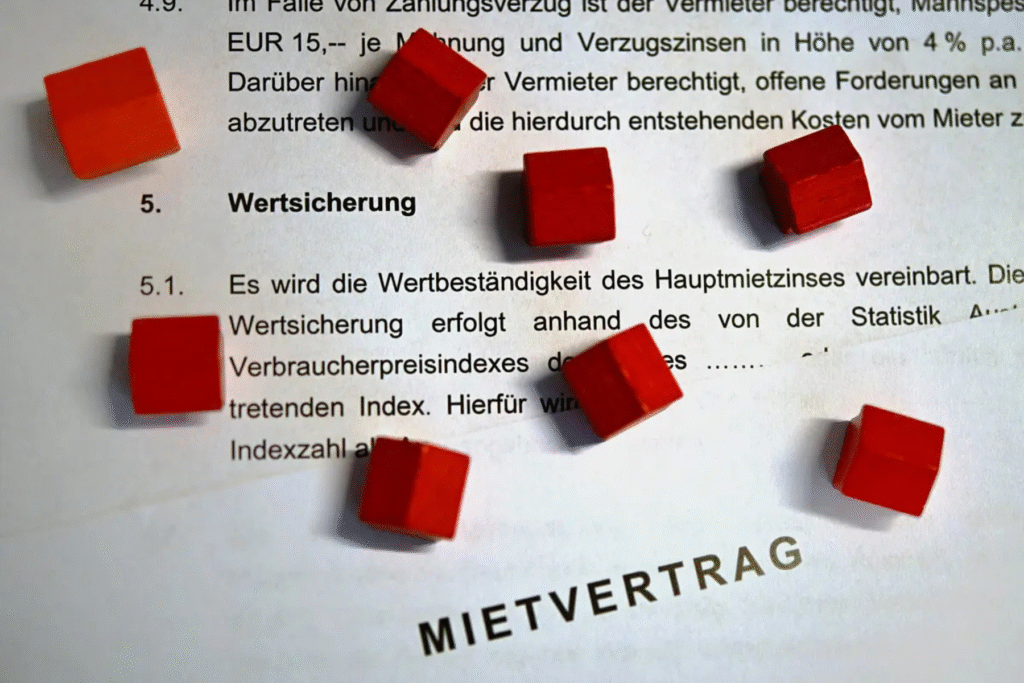
The federal government’s rent and housing package is currently under review. Ideally, it will be presented to the National Council plenary by the end of the year, though possibly not until January, said ÖVP finance spokesman Andreas Ottenschläger. “The goal is still this year, but we will not be rushed,” he told journalists Monday evening. The new regulations are expected to take effect at the beginning of 2026.
Ottenschläger said “very challenging negotiations” preceded the agreement. The core elements of the package include value protection for rental contracts and a cap on rent increases for the free market. The planned Rent Value Protection Act introduces a legal framework for value protection in residential leases for the first time. This refers to the relationship between a service—such as providing an apartment—and the corresponding payment in rent. “This will restore legal certainty,” Ottenschläger and ÖVP housing spokesman Norbert Sieber said.
Legal Certainty After Court Rulings
Two Supreme Court (OGH) rulings in 2023 had caused confusion by setting strict requirements for value adjustment clauses in lease contracts. Failure to meet these standards would have invalidated the right to value adjustments. In extreme cases, all past rent increases could have been declared invalid, allowing tenants to reclaim up to 30 years of adjustments, freezing rents at their original nominal value.
According to Ottenschläger and Sieber, the new Value Protection Act will now “repair” the negative consequences of these rulings. The law will provide legal certainty and “a fair balance between tenants and landlords.” The legal foundation is a July 11, 2025, ruling by the Constitutional Court (VfGH), which confirmed that value protection is not unconstitutional and serves the legitimate interests of property owners. Given the lack of clear case law on overpaid adjustments, the governing parties agreed on a five-year statute of limitations for reimbursement claims.
The ÖVP lawmakers warned that uncertainty on the market is already high. “Eliminating the right to value protection would have severe economic consequences” for landlords, investors, pension funds, the financial sector, and rental housing construction. It would also affect necessary adjustments related to achieving climate goals.
Partial Decoupling From Inflation Planned
Ottenschläger stressed that it was essential the new rules not interfere with rent pricing. He also welcomed the planned moderation of rent increases through a partial decoupling from inflation. Under the plan, rents will rise—or fall—on April 1 by the previous year’s inflation rate, but only up to 3 percent. For inflation above that threshold, only half of the excess will be applied. For example, if inflation was 4 percent, rents would rise by 3.5 percent; if inflation reached 5 percent, the increase would be limited to 4 percent.
So far, this rule applies only to free-market rents. In regulated and “appropriate” rents, increases will be capped at 1 percent for 2026 and 2 percent for 2027. The term “appropriate rent” under the Value Protection Act covers commercial leases, new buildings constructed after May 8, 1945, listed properties with owner investment, apartments over 130 square meters, and open-ended leases with written agreements after one year.
Minimum Term For Fixed Contracts To Increase
The draft also proposes longer minimum terms for fixed-term leases. Instead of the current three years, the minimum duration would be extended to five years. Longer rental periods are also in landlords’ interest, Sieber said: “Every landlord is happy to have good tenants.”

